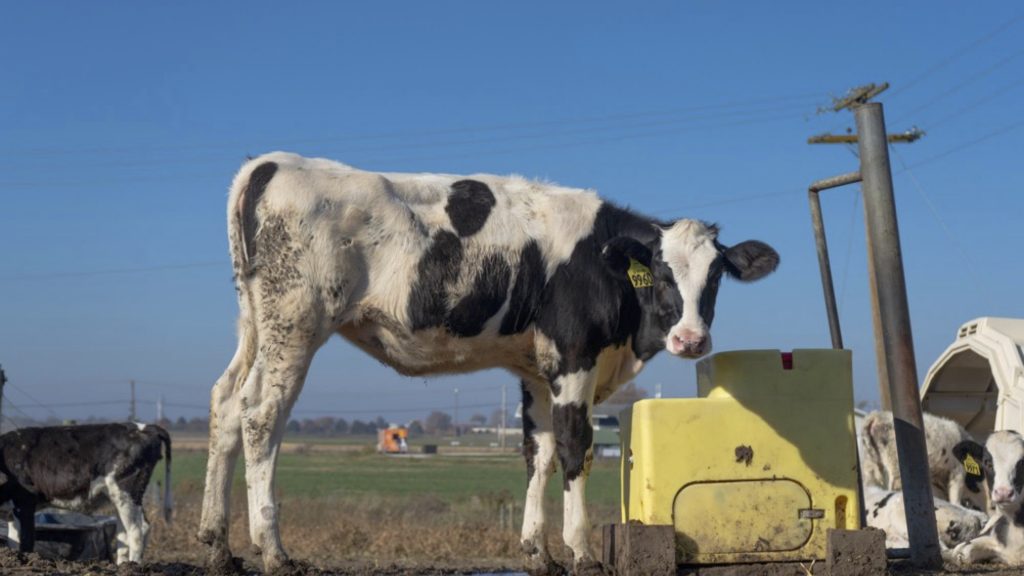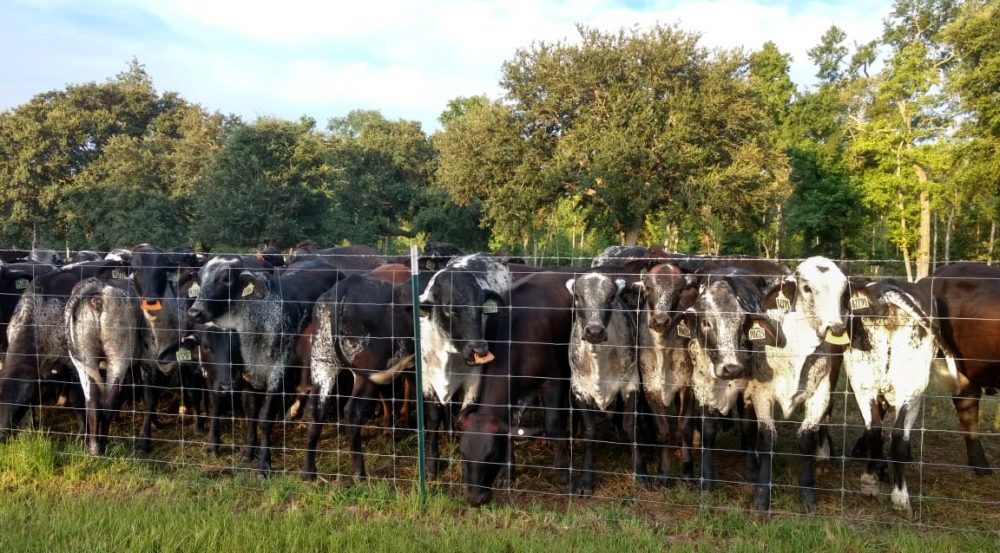The Daily Illini • December 30, 2023 • https://dailyillini.com/news-stories/around-campus/2023/12/30/ui-gmo-cow-project-tanzania/

Isaac Pinkus
A cow stands at her water basin at the Dairy Cattle Research Unit on South Lincoln Dr. and Hazelwood Dr. on Nov. 11.
By Megan Tafalla, Contributing Writer
In March 2024, animal scientists from the University will travel to Tanzania to launch a pilot project of cattle that will produce 10 times more milk than indigenous Tanzanian cattle.
The Tanzania Tropical Adapted Cattle Project, led by Matthew Wheeler, professor in ACES, crossbreeds Gyr cattle and Jersey cattle to create a hybrid dairy cow.
The hybrid’s hollow hairs and increased skin area, taken from the Gyr, will allow it to endure Tanzania’s tropical heat. Jersey genetics will give the hybrid longer lactation periods and larger udders, allowing it to produce an average of 5 liters of milk per day.
In comparison, indigenous Tanzanian cattle produce half a liter per day.
The team will begin the first phase of the project at two pilot locations in Tanzania. Before the trip, they’ll inseminate 100 Jersey embryos with Gyr semen, then freeze the embryos for transportation. Then, in Tanzania, they’ll insert the embryos into indigenous Tanzanian cattle.
Once the indigenous cattle give birth to the Jersey-Gyr hybrids, the team will remove embryos from the hybrids and repeat the insemination process until the fifth generation of Jersey-Gyr hybrids.
“The reason you have to do that is because of the genetics,” Wheeler said. “Every time you breed them, the DNA recombines. And by the time you get to the pure synthetic generation, the genes are fixed. So at that generation, we can actually select for higher milk production.”
Accounting for the crossbreeding process, it will take 10 years to reach the fifth generation of cattle.
The team will collaborate with the Maasai, a pastoral and semi-nomadic tribe in Kenya and Tanzania who depend on cattle.
In addition to optimizing milk production, the team will introduce new cattle management strategies and embryonic crossbreeding technologies to the Maasai to optimize the Jersey-Gyr hybrid’s milk production. Furthermore, the creation of a cattle genetic record system will help the herdsmen to track their animals’ genetics.
Researchers from China, the Philippines, Jamaica and Uganda have also contacted the team for work.
“I decided that what I’d like to do with the rest of my career is try to get these animals, a high health status herd of these animals, and get the genetics disseminated to … the Global South and try to help feed people,” Wheeler said. “Because really, when you sign up to be in agriculture, you sign up to feed people.”
CORRECTION Jan. 25, 11:22 p.m.: A previous version of this article was inaccurately titled “UI researchers to launch GMO cow project in Tanzania.” The official definition of a GMO, per the U.S. Department of Agriculture, is “a plant, animal or microbe in which one or more changes have been made to the genome, typically using high-tech genetic engineering, in an attempt to alter the characteristics of an organism.” As the cattle in this project do not fall under this definition, the title of this article has since been corrected.

